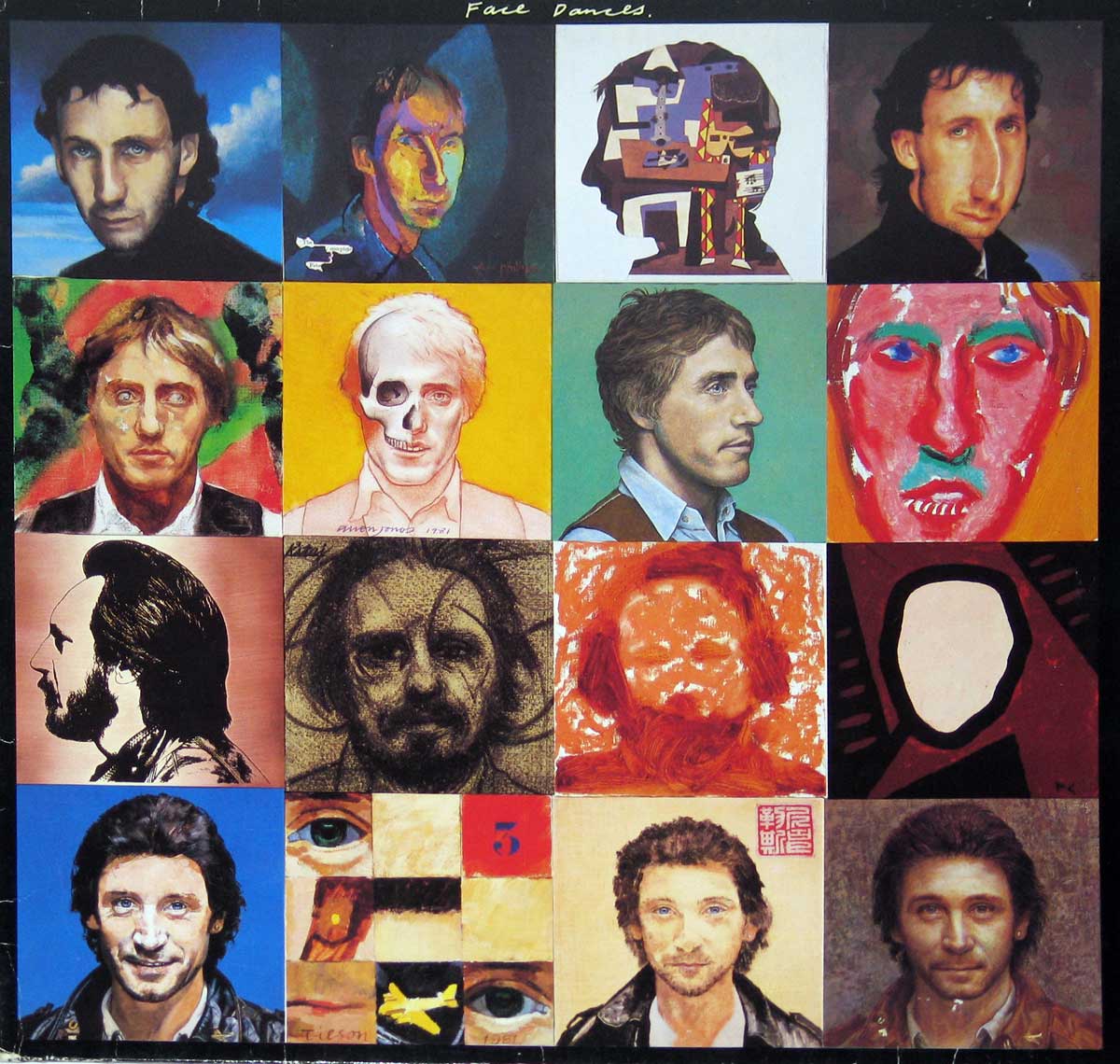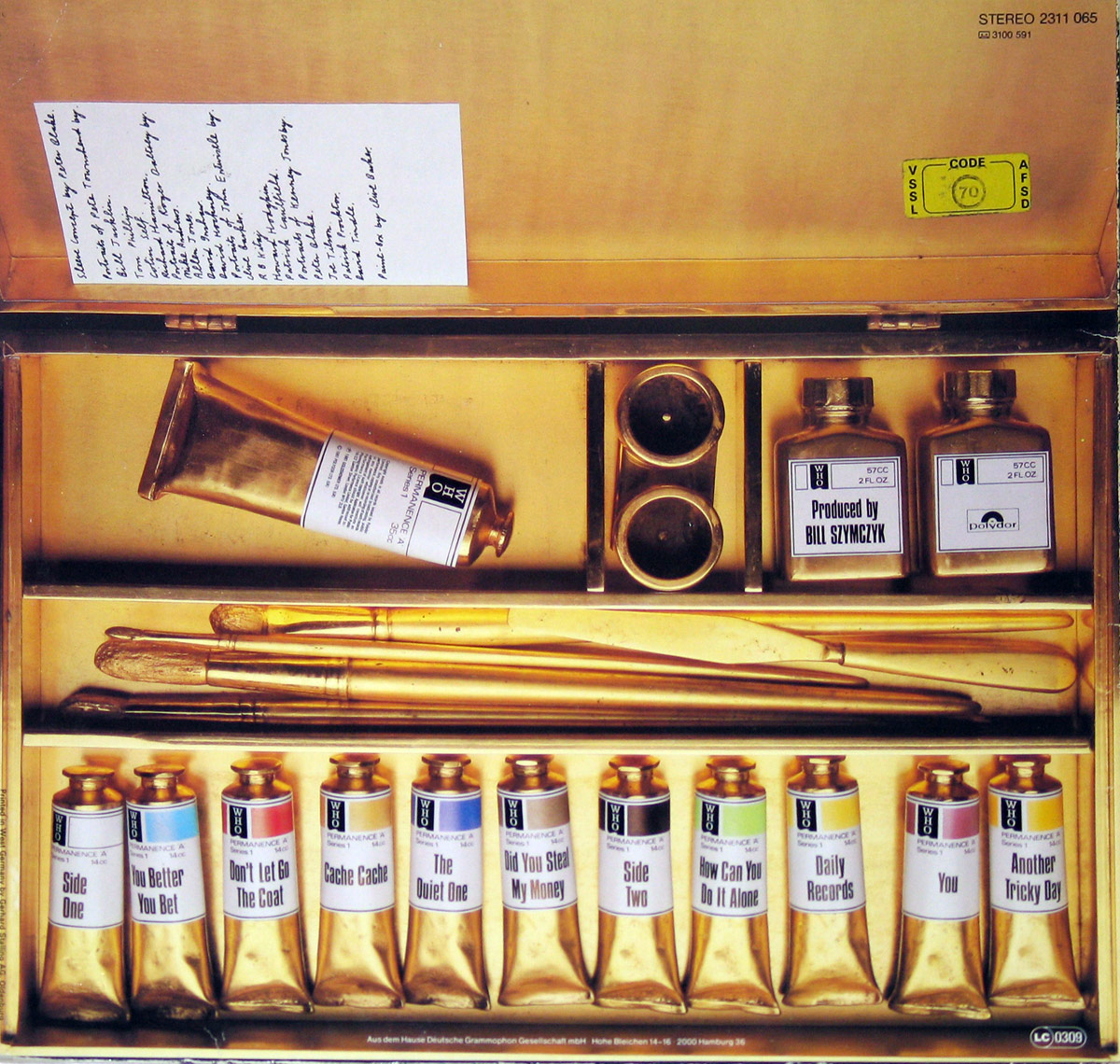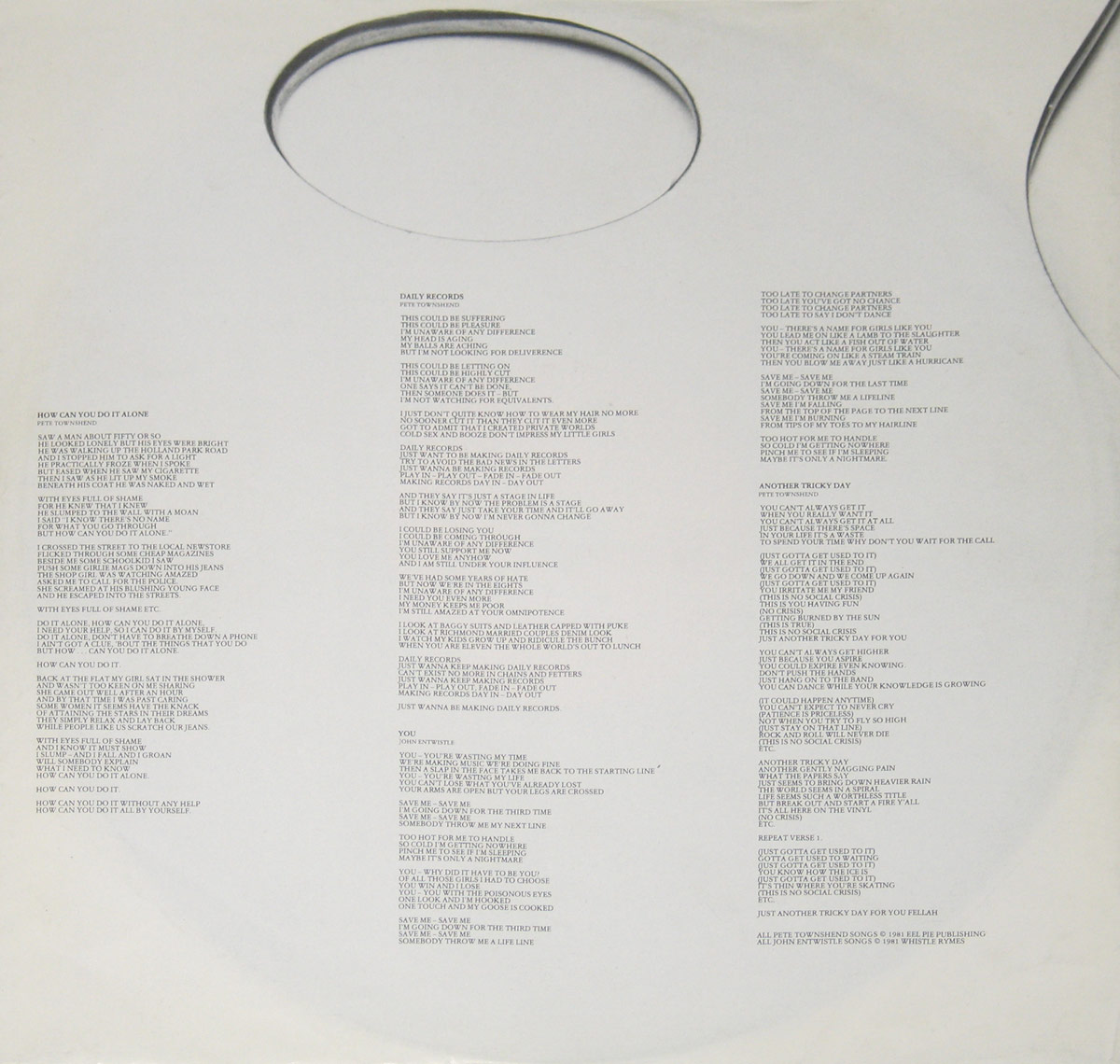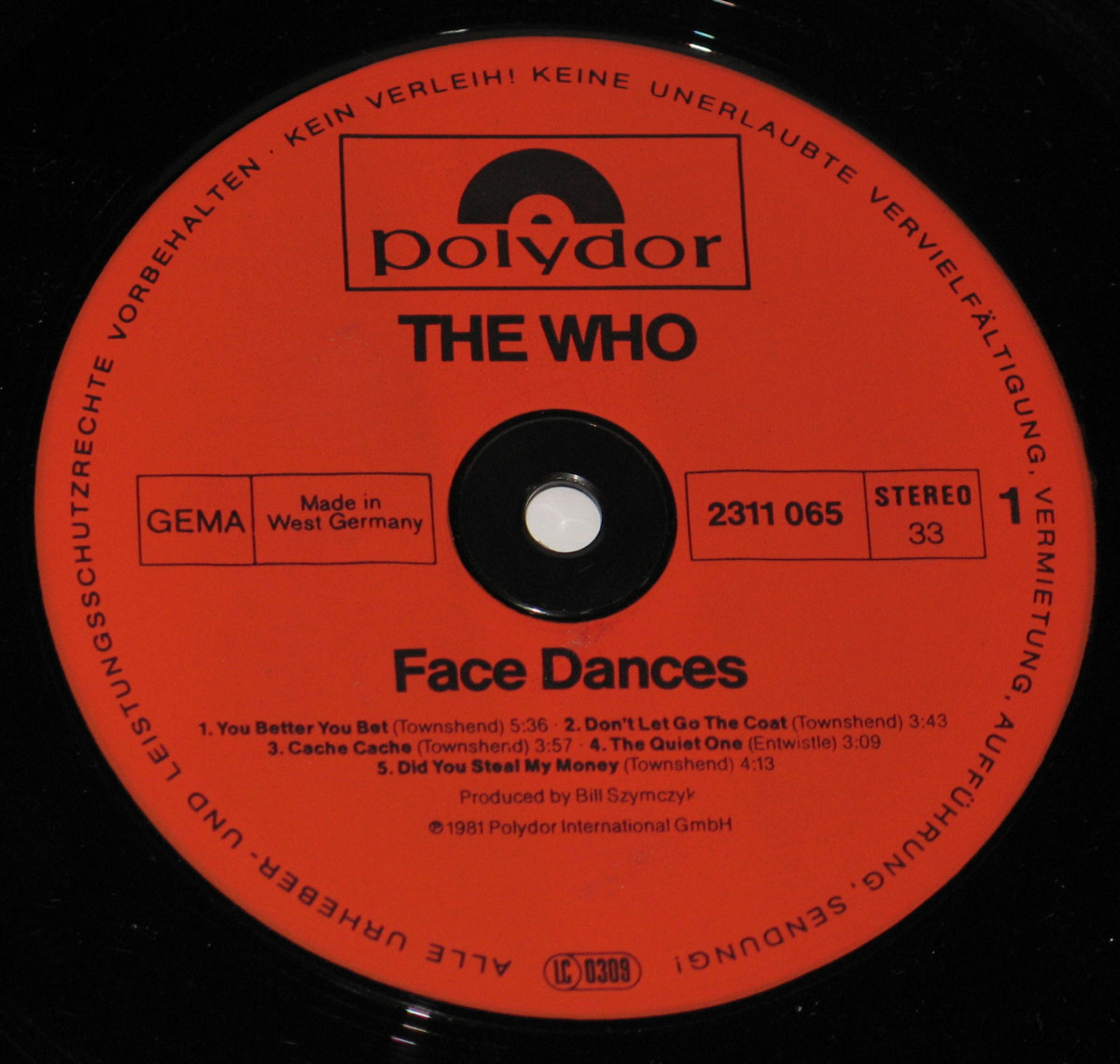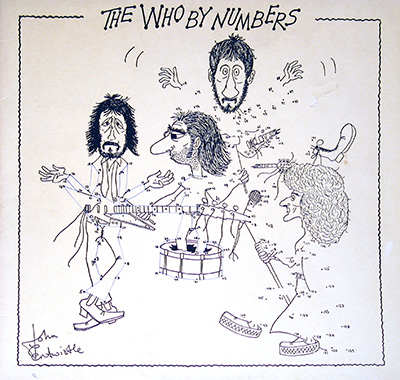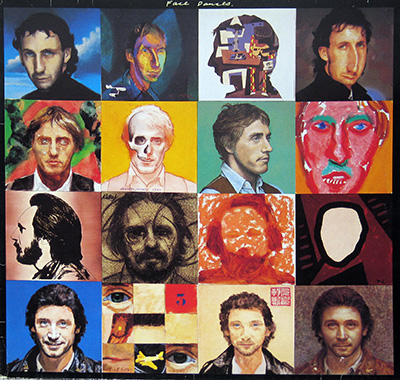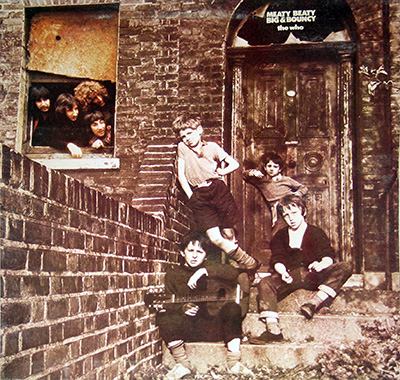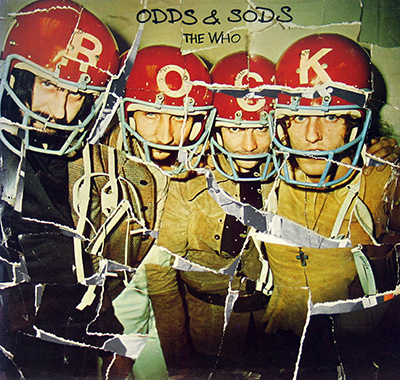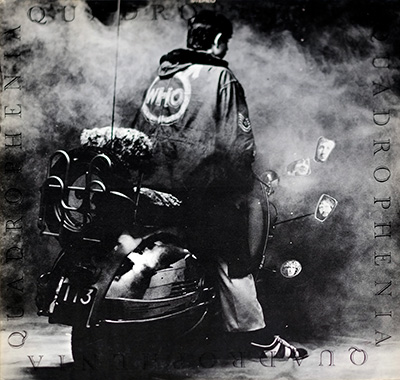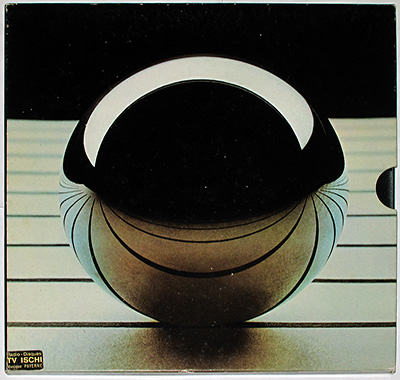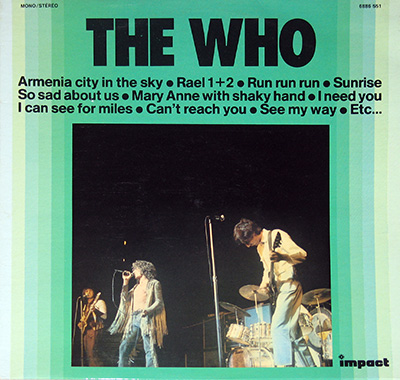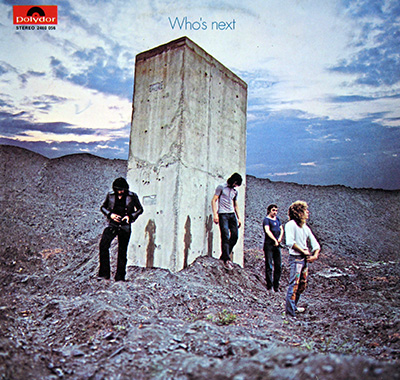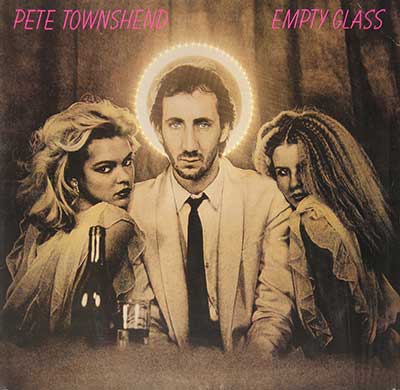The year was 1981, and The Who, one of rock's legendary bands, embarked on a creative endeavor that would shape the landscape of their discography—the release of "Face Dances." Following the tragic death of their iconic drummer Keith Moon in 1978, the band faced the challenge of redefining their sound with the inclusion of drummer Kenney Jones.
"Face Dances" marked a departure from the band's earlier hard rock sound, incorporating elements of new wave and synthesizers. The album's creation unfolded against a backdrop of both excitement and uncertainty, as the band navigated the intricate dynamics of adapting to a new member while striving for a fresh musical direction.
Pete Townshend, the band's guitarist and principal songwriter, played a pivotal role in shaping the album's thematic depth. His introspective lyrics delved into personal struggles and the complexities of the human experience. Songs like "You Better You Bet" and "Don't Let Go the Coat" showcased a more mature and refined musicality, resonating with both existing fans and a new wave audience.
Despite facing initial skepticism from some die-hard fans, "Face Dances" achieved commercial success and marked a significant chapter in The Who's evolution. It was an album that encapsulated the band's resilience and ability to adapt, proving that even in the face of loss, they could create music that resonated across generations.
Notes: "Face Dances" was the first full new album The Who made with drummer Kenney Jones as a replacement for Keith Moon.
